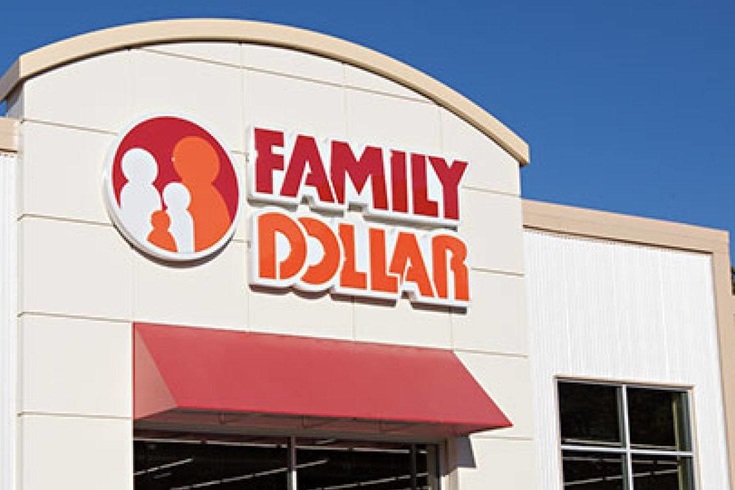
Avian flu and inflation costs cripple the egg supply.
The wholesale price of eggs continues to skyrocket due to the deadly avian flu that has been ravishing poultry farms all over the country. In the last month alone, the cost of eggs has increased by 11.1% adding to the already 60% increase total from December of last year. The consumer-price index, which measures what consumers spend on goods and services cited that overall inflation has now steadied to around 6.5%. As a result, egg prices have actually dropped slightly from the record-high figure of last month, however, retail stocks remain as expensive as ever, with no signs of improving anytime soon.
The cost of eggs rose more than any other supermarket item this past year, with wholesale prices of large eggs reaching a record figure of $5.46 a dozen in certain places. This staggering sales price decreased to $3.77 a dozen in January 2023 after the holiday demand ended. Retail vendors know this to be a normal occurrence after Christmas, as demands lull following the busy holiday season.
Some stores have seen a slight decrease in cost, however, prices are likely to stay roughly the same until around February or March. By spring, suppliers hope that new flocks of hens will be strong and healthy enough to produce steadier supplies.
The major reason for the egg price increase is that since January 2022, 58 million birds have fallen victim to the highly infectious avian influenza. According to the U.S. Agriculture Department, it is the worst flu outbreak on record, topping the previous worst outbreak in 2015, which saw some 50 million birds killed. As a result of the crisis, egg inventories were 29% lower by the end of 2022 when compared to the start of the year. This critical factor, combined with increased holiday demand, the overall inflation hike on food prices, labor, and logistics, all contributed to the recent successive weeks of record-high retail prices.
Leading industry experts have accounted the unprecedented growth of the virus in wild birds such as ducks and others spreading it to farms nationwide as they migrate. In the hopes of quelling the virus’s spread, entire flocks are killed once an infection has been verified.
Bird flu is a notoriously contagious disease in birds that can infect and wipe out untold amounts of domesticated breeds, such as chickens and turkeys. According to the CDC, it kills almost 100% of infected chickens, and in some cases can destroy whole populations in as little as 48 hours.
To control the spread of the disease, methods such as carbon dioxide gas and suffocation by foam are used to cull the infected flocks. To ease farmers’ losses, the USDA will compensate farms for the loss of their birds, as well as their eradicated eggs.
Although certain spots have encountered shortages, the American Egg Board has assured that the issue is not and will not be a widespread one. The data put out by the board shows that farms are recovering quicker than in the 2015 crisis, and things are beginning to stabilize now moving forward. The nation’s biggest supermarket chain, Kroger Co., has also assured the public that egg supplies are stable. This has been backed up further by other smaller chains claiming they have only had to deal with short periods of shortages.
As eggs are an essential item for the majority of U.S. customers, sellers have strived to keep prices as competitive as possible, with some retailers even deducting their egg profits in order to insure prices stay as low as possible.
Cal-Maine Foods Inc., America’s largest egg producer, warned last month that the effect of the outbreak might keep egg supplies tight until around Spring when the national average for egg-laying chickens has hopefully recovered.
The flu outbreak also resulted in around 10 million turkey deaths, making the supply on turkeys restricted. As of Spring last year, the wholesale price of turkey meat also climbed to record-high numbers and has stayed that way ever since.
With all that being said, it looks like things are indeed beginning to recover, but it still might be a couple of months before the crisis is deemed to be fully over and prices in stores begin to drop.

Avian flu and inflation costs cripple the egg supply.
The wholesale price of eggs continues to skyrocket due to the deadly avian flu that has been ravishing poultry farms all over the country. In the last month alone, the cost of eggs has increased by 11.1% adding to the already 60% increase total from December of last year. The consumer-price index, which measures what consumers spend on goods and services cited that overall inflation has now steadied to around 6.5%. As a result, egg prices have actually dropped slightly from the record-high figure of last month, however, retail stocks remain as expensive as ever, with no signs of improving anytime soon.
The cost of eggs rose more than any other supermarket item this past year, with wholesale prices of large eggs reaching a record figure of $5.46 a dozen in certain places. This staggering sales price decreased to $3.77 a dozen in January 2023 after the holiday demand ended. Retail vendors know this to be a normal occurrence after Christmas, as demands lull following the busy holiday season.
Some stores have seen a slight decrease in cost, however, prices are likely to stay roughly the same until around February or March. By spring, suppliers hope that new flocks of hens will be strong and healthy enough to produce steadier supplies.
The major reason for the egg price increase is that since January 2022, 58 million birds have fallen victim to the highly infectious avian influenza. According to the U.S. Agriculture Department, it is the worst flu outbreak on record, topping the previous worst outbreak in 2015, which saw some 50 million birds killed. As a result of the crisis, egg inventories were 29% lower by the end of 2022 when compared to the start of the year. This critical factor, combined with increased holiday demand, the overall inflation hike on food prices, labor, and logistics, all contributed to the recent successive weeks of record-high retail prices.
Leading industry experts have accounted the unprecedented growth of the virus in wild birds such as ducks and others spreading it to farms nationwide as they migrate. In the hopes of quelling the virus’s spread, entire flocks are killed once an infection has been verified.
Bird flu is a notoriously contagious disease in birds that can infect and wipe out untold amounts of domesticated breeds, such as chickens and turkeys. According to the CDC, it kills almost 100% of infected chickens, and in some cases can destroy whole populations in as little as 48 hours.
To control the spread of the disease, methods such as carbon dioxide gas and suffocation by foam are used to cull the infected flocks. To ease farmers’ losses, the USDA will compensate farms for the loss of their birds, as well as their eradicated eggs.
Although certain spots have encountered shortages, the American Egg Board has assured that the issue is not and will not be a widespread one. The data put out by the board shows that farms are recovering quicker than in the 2015 crisis, and things are beginning to stabilize now moving forward. The nation’s biggest supermarket chain, Kroger Co., has also assured the public that egg supplies are stable. This has been backed up further by other smaller chains claiming they have only had to deal with short periods of shortages.
As eggs are an essential item for the majority of U.S. customers, sellers have strived to keep prices as competitive as possible, with some retailers even deducting their egg profits in order to insure prices stay as low as possible.
Cal-Maine Foods Inc., America’s largest egg producer, warned last month that the effect of the outbreak might keep egg supplies tight until around Spring when the national average for egg-laying chickens has hopefully recovered.
The flu outbreak also resulted in around 10 million turkey deaths, making the supply on turkeys restricted. As of Spring last year, the wholesale price of turkey meat also climbed to record-high numbers and has stayed that way ever since.
With all that being said, it looks like things are indeed beginning to recover, but it still might be a couple of months before the crisis is deemed to be fully over and prices in stores begin to drop.



